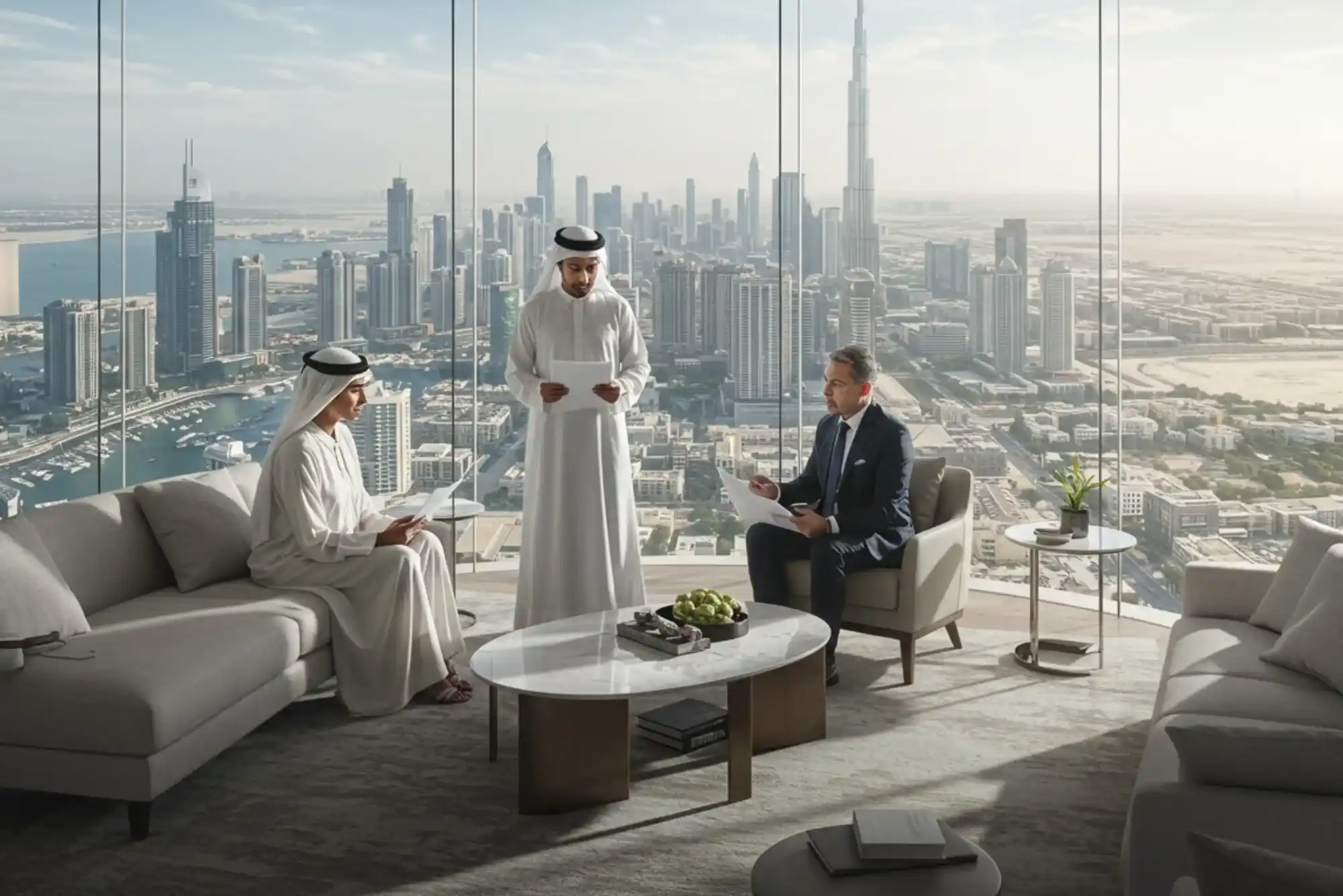Investing in property in the UAE is one of the most rewarding decisions an individual or business can make. The country’s real estate sector continues to grow, driven by stability, high rental yields, and world-class infrastructure. From luxurious waterfront apartments in Dubai Marina to family villas in Arabian Ranches or off-plan projects in Dubai Creek Harbour, opportunities are vast and varied.
Yet, beneath the promise of profit and prestige lies a complex legal framework — one that governs ownership rights, developer obligations, registration requirements, and contractual compliance. Whether you’re a first-time buyer or a seasoned investor, having a Real estate lawyer in Dubai by your side is not just helpful — it’s essential. This guest post explores why legal guidance is crucial in property transactions, how it safeguards your investment, and what every buyer should know before signing on the dotted line.
Understanding Property Ownership in the UAE
Property ownership in the UAE depends on nationality, residency, and the location of the property.
- UAE nationals can own property anywhere in the country.
- Foreigners and expatriates can purchase real estate in designated freehold zones such as Downtown Dubai, Palm Jumeirah, Business Bay, and Dubai Hills Estate.
- In some emirates, ownership rights differ — for example, Sharjah allows foreign ownership only through long-term leases.
Knowing these distinctions is vital before making a purchase. A lawyer ensures you understand the nature of your ownership — whether it’s freehold, leasehold, usufruct, or musataha — and how it affects long-term control over your property.
The Legal Documents Involved
Buying property in Dubai involves several legal documents, each requiring careful review:
- Sales and Purchase Agreement (SPA) – the contract outlining the rights and obligations of both buyer and seller.
- Title Deed – proof of ownership issued by the Dubai Land Department (DLD).
- Form F (RERA Contract) – the standard Dubai Real Estate Regulatory Agency document used in secondary market transactions.
- Developer NOC – clearance from the developer confirming all payments are settled before transfer.
A lawyer reviews these documents for inconsistencies, ambiguous terms, or unfair clauses that may later expose you to financial or legal risk.
Why You Need Legal Assistance in Off-Plan Purchases
Off-plan properties — those still under construction — are attractive due to flexible payment plans and lower entry costs. However, they carry higher risk. Delays, developer insolvency, or project cancellations can disrupt your investment plans.
A Real estate lawyer in Dubai ensures that:
- The project is registered with the Dubai Land Department and has an escrow account.
- The developer is licensed and financially stable.
- The SPA contains penalty clauses protecting you if the project is delayed.
- Payment milestones match construction progress, not arbitrary dates.
Such due diligence minimizes the possibility of loss and ensures your funds remain secure until project completion.
Property Transfer and Registration Process
Once the buyer and seller agree on terms, the transaction must be registered through the Dubai Land Department to make it legally binding. The process typically includes:
- Signing the Form F and paying the DLD transfer fee (usually 4% of the property price).
- Obtaining the developer’s No Objection Certificate.
- Attending the transfer appointment at the DLD or an approved trustee office.
- Receiving the new title deed in your name.
Missing any of these steps or submitting incomplete documents can delay or invalidate your transaction. A lawyer ensures all regulatory requirements are fulfilled accurately and promptly.
Avoiding Fraud and Misrepresentation
While Dubai’s property market is well-regulated, cases of fraud and misrepresentation still occur — particularly in private sales or off-market deals. Examples include:
- Sellers offering property without full ownership rights.
- Buyers transferring deposits without verified documentation.
- Fake brokers misusing power of attorney documents.
An experienced lawyer verifies the authenticity of all documents, confirms ownership through the DLD database, and ensures funds are exchanged through official escrow channels. This legal oversight provides peace of mind and prevents financial loss.
Navigating Joint Ownership and Inheritance Issues
Joint property ownership can be complicated when one owner passes away or wishes to sell. The UAE applies both civil and Sharia-based inheritance principles, which may affect how property shares are distributed.
Legal professionals help you:
- Draft clear co-ownership agreements.
- Include property in wills registered under the DIFC Wills and Probate Registry.
- Transfer or sell shares in compliance with UAE inheritance law.
By addressing these issues early, you protect your heirs and co-owners from potential disputes later.
Handling Mortgage and Financing
Most buyers rely on mortgage financing from UAE banks. However, mortgage contracts include clauses that significantly affect your repayment flexibility, early settlement rights, and foreclosure risk.
A lawyer ensures the terms are transparent, checks for hidden costs, and confirms the mortgage aligns with the DLD’s regulations. They also guide you in case of refinancing or default, helping you communicate effectively with financial institutions.
Dispute Resolution and Legal Remedies
Disagreements in property deals are not uncommon — whether it’s construction delays, boundary disputes, or breaches of contract. In Dubai, property-related conflicts can be resolved through:
- Dubai Land Department mediation.
- The Rental Dispute Center (for tenancy conflicts).
- Civil Courts or arbitration (for larger, complex disputes).
Having a lawyer who understands both contractual law and real estate litigation ensures your case is presented effectively, maximizing your chances of a favorable outcome.
The Importance of Due Diligence
Due diligence is the cornerstone of safe property investment. A legal team conducts background checks on:
- The property’s legal status and encumbrances.
- Developer track record and delivery timelines.
- Compliance with zoning and planning regulations.
- Outstanding service charges or disputes.
This proactive step prevents unpleasant surprises, such as hidden liabilities or unregistered modifications.
Foreign Investors and Residency Benefits
One of Dubai’s unique advantages is that property investment can grant eligibility for long-term residency visas. However, visa rules vary depending on property value and type of ownership.
Legal advisors ensure your investment meets the criteria for property-linked residency and assist with the application process. They also help investors structure ownership through corporate or trust entities for asset protection and tax efficiency.
Selling Property Safely
Selling property in Dubai requires equal care. From listing agreements to ownership verification and mortgage clearance, each stage carries legal implications.
Lawyers in Dubai prepares the sale agreement, ensures transfer compliance, and manages escrow releases to guarantee that payment and property exchange occur simultaneously and securely.
Real Estate Compliance in a Changing Market
Dubai’s property laws continue to evolve, reflecting global best practices in transparency and investor protection. Regulations such as anti-money-laundering (AML) reporting, digital title registration, and electronic escrow monitoring are now integral to every transaction.
Legal counsel ensures that you remain compliant with these regulations, avoiding penalties and maintaining your investment’s legal integrity.
The Cost of Not Having Legal Representation
While some buyers rely solely on agents, the absence of legal representation can lead to costly mistakes — from signing one-sided contracts to missing out on compensation claims. Legal oversight costs a fraction of what you might lose in a dispute or cancellation case.
Conclusion: Protecting Your Investment the Smart Way
Dubai’s real estate sector is one of the most promising in the world, offering transparency, security, and high returns. However, these benefits are fully realized only when your transactions comply with the legal framework that governs property ownership and investment.
Whether buying, selling, or investing in off-plan projects, legal due diligence isn’t an option — it’s a necessity. Working with a qualified Real estate lawyer Dubai provides you with the confidence that every document, signature, and payment is fully compliant and that your rights are protected throughout the process.
In a market as dynamic as Dubai’s, smart investors don’t just rely on brokers; they rely on clarity, compliance, and legal foresight. A dedicated legal partner ensures your property investment remains not just profitable, but also perfectly secure.




